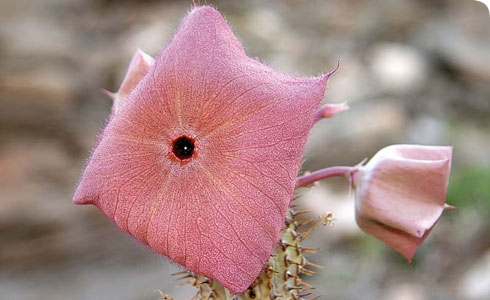Hoodia currorii (Ghaap, hoodia cactus)
For centuries, African tribesmen have used hoodias to quench their thirst and hunger pangs while making long hunting trips.
Hoodia currorii (Hook.) Decne. is a cactus-like plant containing substances that suppress hunger and thirst.
Hoodia’s use as an appetite suppressant is supported by both colourful folklore history and recent scientific studies. Young pods are also eaten for their sweetness.
Recently its medicinal properties have raised interest in the Western world and the active ingredient found in this plant is being used to develop a slimming pill. It is also used to treat high blood pressure.
Hoodias are also grown as attractive ornamentals for desert gardens.
Species detail
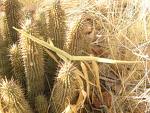
Hoodia currorii fruit
In the wild, the plant reproduces with seeds but cultivated plants can be increased by taking cuttings from the base of a branch. However, cultivated plants do not survive in moist conditions.
Uses
Hoodia currorii is:
- eaten as food
- used to treat high blood pressure, and stomach and nutritive ailments
-

Taxonomy
Hoodia currorii only produces flowers after rain. The flowers have the pungent scent of rotten meat that helps attract insect pollinators. Discover more about this succulent shrub and its spiky relatives.
-

Distribution
Hoodia currori is found in central and southern parts of Africa. Find out where it likes to live.
-

Conservation
This plant holds great medicinal value, and may be overexploited. Most hoodia species are now protected. Find out more.
-
References
Get reference material for Hoodia currorii.
Images
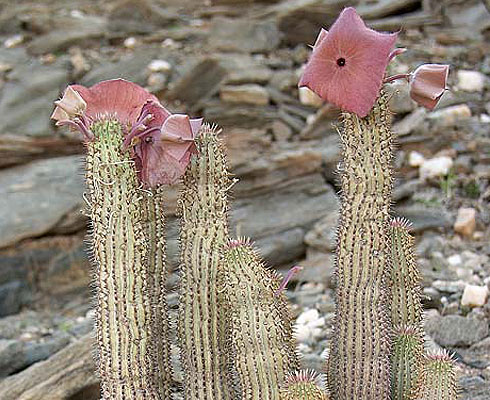
Hoodia currorii.
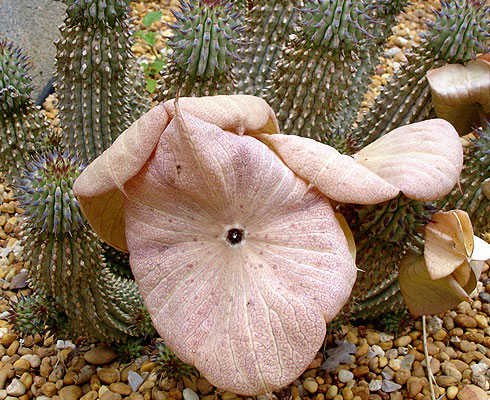
Hoodia currorii.
© T Móia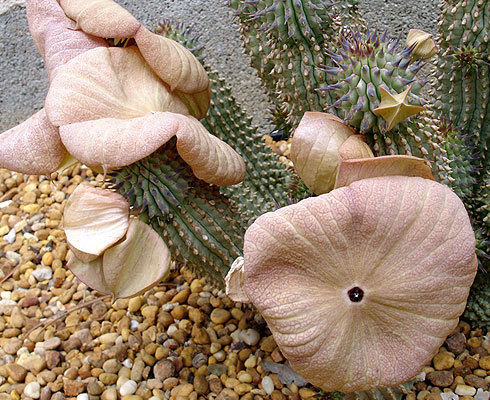
Hoodia currorii.
© T MóiaAuthor
Ranee Prakash
Toolbox
Glossary
Bio prospecting
Searching for, collecting, and deriving genetic material from samples that can be used in commercialised pharmaceutical, agricultural, industrial or chemical processing end products.
Glabrous
Smooth and hairless surface.
